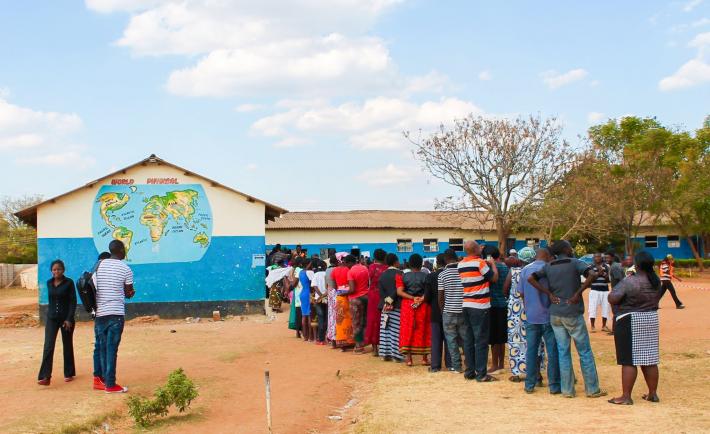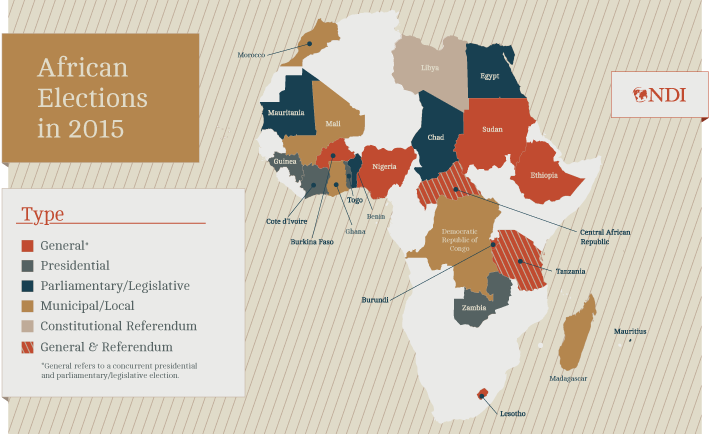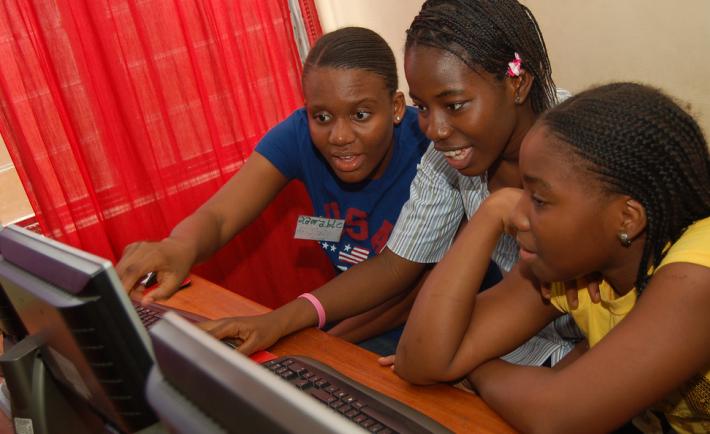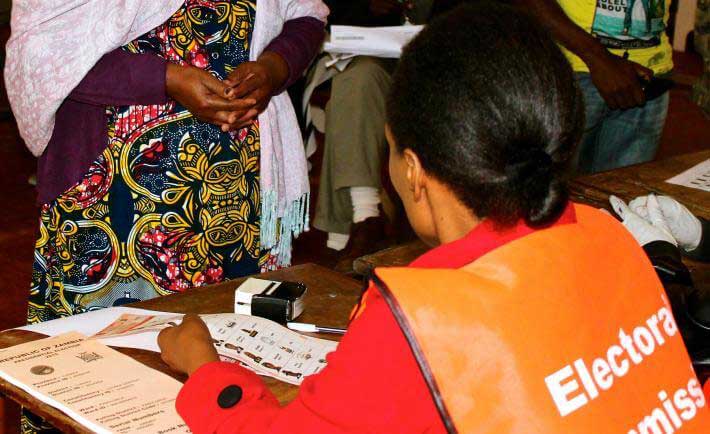As young people from different political parties, we have learned that violence should not be part of us and we should denounce violence at all costs. We must use every opportunity and avenue to advocate for youth-sensitive policies and political space that provides respect for freedom of association, freedom of movement, freedom of the press and access to information. We must become aware of our rights and opportunities to participate in decision-making so we can continue to shape our futures together.
Taking Wing: Being a Peace Ambassador in Zambia
Six Critical African Elections To Watch in 2016

Over the course of 2016, a total of 32 countries in Africa will hold elections from local to presidential (view interactive map). Map is based on U.N.-defined boundaries. Credit: NDI CC BY-NC
Africa is home to a wealth of political diversity and regime types. In 2015, elections brought about the first peaceful transfer of power to Africa’s most populated country, Nigeria, but also led to mass civil unrest and instability in Burundi. Over the course of 2016, 32 countries on the continent will hold elections from local to presidential. However, the context of each election varies not only in political landscape, but also in the strength of democratic institutions and norms embodied within each country’s political system. In countries like Ghana, political actors will compete in a fierce struggle of wooing enough voters amid an increasingly critical public. In Uganda, the competition will center upon establishing the rules of the electoral game, as a long-time ruler works to tilt the playing field in his favor. Understanding the political background of each election allows for a richer narrative in the journey toward democratic consolidation.
Six Critical African Elections to Watch in 2015
Between January 2015 and December 2016, African countries will organize more than 35 presidential and legislative elections, and the outcomes have the potential to spark a sea change for the continent. The first of these polls took place in January with the Zambian presidential election after the unexpected death of President Michael Sata.
Q&A: Democracy, Technology and Young African Leaders
On Feb. 10, I took part in a three-day Facebook #YALICHAT with young African leaders – President Obama’s signature effort to invest in the next generation of African entrepreneurs, educators, activists and innovators. After introducing myself and my work in a blog post, I took questions and comments from the YALI Network centered on the role of technology in democracy. Topics included: bridging gaps between youth and politicians online; how technology can improve transparency and government accountability; taking political action; online security; election monitoring; and using technology to empower people to become more involved in politics.
Zambia Elections: Using Facebook for Targeted Messages
Presenting the analysis of election day observation to the right audience is a critical component of citizen monitoring organizations’ outreach strategies, and one of which NDI has provided technical assistance to partners on for decades. In some countries where NDI works, Facebook has become synonymous with the Internet, and the use of Facebook for election day outreach has become an increasingly useful tool for communicating with certain audiences.




